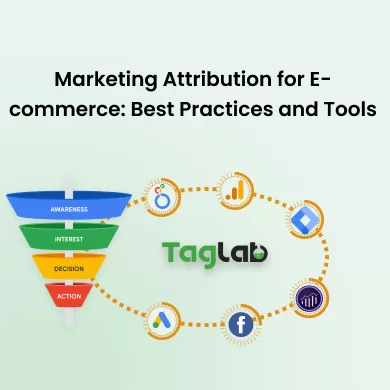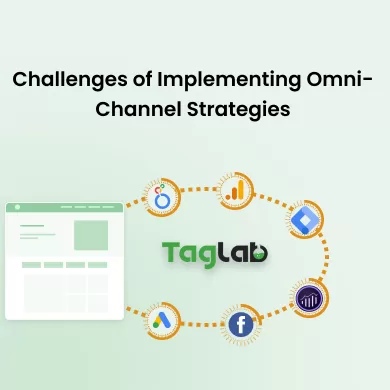Your cart is currently empty!
Organic Search Conversion Rate
Posted by:
|
On:
|
Organic Search Conversion Rate is a key performance indicator (KPI) that measures the percentage of visitors who arrive at a website through organic search results and complete a desired action, such as making a purchase or signing up. This metric helps businesses evaluate the effectiveness of their SEO strategies in driving valuable traffic.
Detailed Explanation
What is Organic Search Conversion Rate?
Organic Search Conversion Rate is calculated by dividing the number of conversions generated from organic search traffic by the total number of visitors from organic search, then multiplying the result by 100 to get a percentage. A higher conversion rate indicates that the organic search traffic is effectively driving the desired actions from the audience.
How it Works?
Organic Search Conversion Rate provides insights into how well a website’s organic search traffic converts into desired actions. By analyzing conversion rates, businesses can identify which keywords, content, and landing pages are most effective in driving conversions from organic search. Consistently high conversion rates suggest that the SEO strategy is well-targeted and optimized.
Types of Organic Search Conversions
- Product Purchases: The percentage of organic search visitors who make a purchase.
- Lead Generation: The percentage of organic search visitors who complete a lead capture form.
- Sign-Ups: The percentage of organic search visitors who sign up for a service or newsletter.
Illustrative Scenarios
Examples
- If a website receives 5,000 visitors from organic search and results in 250 purchases, the Organic Search Conversion Rate is (250/5,000) x 100 = 5%.
- If another website receives 3,000 visitors from organic search and generates 150 lead captures, the Organic Search Conversion Rate is (150/3,000) x 100 = 5%.
Segmentation
Analyzing Organic Search Conversion Rate by different segments (e.g., by keyword, content type, or demographic) can provide deeper insights. For example, comparing conversion rates across different keywords can help optimize content and SEO strategies.
Factors Influencing Organic Search Conversion Rate
- Keyword Relevance: Keywords that closely match user intent and search queries tend to have higher conversion rates.
- Content Quality: High-quality, relevant content that matches user expectations can increase conversion rates.
- Landing Page Optimization: Well-designed, relevant landing pages with clear calls to action can boost conversion rates.
- User Experience: A seamless user experience from search result to conversion can improve conversion rates.
- Website Performance: Fast-loading, mobile-friendly websites are more likely to convert visitors.
Strategies to Improve Organic Search Conversion Rate
- Optimizing Content: Create high-quality, relevant content that matches user intent and search queries.
- Improving Landing Pages: Ensure landing pages are well-designed, relevant, and optimized for conversions with clear calls to action.
- Enhancing User Experience: Provide a seamless and intuitive user experience from search result to conversion.
- Utilizing A/B Testing: Conduct A/B tests on landing pages, content, and calls to action to identify the most effective elements.
- Monitoring Website Performance: Ensure the website is fast-loading, mobile-friendly, and performs well across devices.
Organic Search Conversion Rate Benchmarks
Organic Search Conversion Rate benchmarks vary by industry and type of conversion. For example:
- E-commerce: Typically have conversion rates ranging from 1% to 3%.
- Finance and Insurance: Conversion rates often range from 4% to 8%.
- Technology: Conversion rates usually range from 2% to 5%.
Comparing your Organic Search Conversion Rate against industry standards can help gauge performance and set realistic goals.
Tools for Measuring Organic Search Conversion Rate
- Google Analytics: Provides detailed conversion tracking and analysis for organic search traffic.
- Google Search Console: Offers insights into search performance and can help identify opportunities to improve conversion rates.
- SEMrush: Provides SEO and conversion tracking tools to analyze organic search performance.
Common Pitfalls and Mistakes
- Ignoring Keyword Relevance: Failing to target relevant keywords can result in lower conversion rates.
- Poor Content Quality: Low-quality or irrelevant content can hurt conversion rates.
- Neglecting Landing Page Optimization: Landing pages that are not optimized for conversions can lead to higher bounce rates and lower conversions.
- Overlooking User Experience: A poor user experience can result in higher abandonment rates and lower conversions.
- Inconsistent Tracking: Inaccurate or inconsistent conversion tracking can lead to unreliable data and insights.
Frequently Asked Questions
What is Organic Search Conversion Rate?
Organic Search Conversion Rate measures the percentage of visitors who arrive at a website through organic search results and complete a desired action. It is calculated by dividing the number of conversions by the total number of visitors from organic search, then multiplying by 100.
Why is Organic Search Conversion Rate important?
Organic Search Conversion Rate is important because it helps businesses evaluate the effectiveness of their SEO strategies in driving valuable traffic. Higher conversion rates indicate more successful SEO efforts.
How can I improve my Organic Search Conversion Rate?
Improving Organic Search Conversion Rate can be achieved by optimizing content, improving landing pages, enhancing user experience, utilizing A/B testing, and monitoring website performance.
What factors influence Organic Search Conversion Rate?
Factors influencing Organic Search Conversion Rate include keyword relevance, content quality, landing page optimization, user experience, and website performance. Addressing these factors can help increase conversion rates.
What is a good benchmark for Organic Search Conversion Rate?
A good benchmark for Organic Search Conversion Rate varies by industry. E-commerce typically ranges from 1% to 3%, finance and insurance from 4% to 8%, and technology from 2% to 5%. Comparing against industry benchmarks can help set realistic goals.




